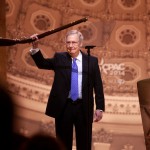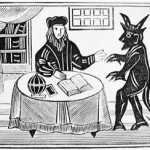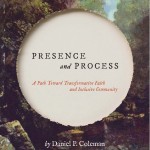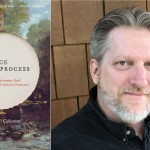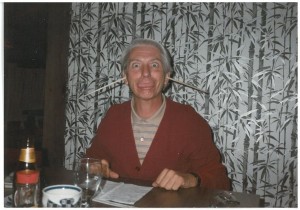
I was in my thirties when my father died. He was fifty-nine; just four years older than I am now. His death was sudden and unexpected. My father was a passionate, active, vivacious man. He was an athlete who climbed mountains, ran marathons and–not long before his passing–rode his recumbent bicycle across the state of Iowa. He worked the night shift as a printer at the city newspaper, a trade he had learned from his father.
My mother found my father’s body when she awoke a couple of hours later, and she called me. I rushed over to their house and knelt beside what was now clearly a cold and empty shell. I put my hand on his forehead and struggled to take in the reality of what was before me. This was the first dead body I had ever seen, and it was my own father–a man who had been so full of life. I was overcome with grief and wonder at the same time. “Perhaps I should command him to rise like Jesus did to Lazarus,” I thought, but the leaden weight of death’s finality crushed any hope or faith that might have momentarily flickered.
The paramedics and police came to confirm that he was indeed gone and that no foul play had occurred. They were efficient, polite and professional. While my mother answered their questions I stayed by my father’s side. A volunteer police chaplain appeared and knelt beside me. He kept making small-talk and speaking trite platitudes as I grappled with the unexpected and devastating confrontation I was having with the great mystery of death. I wanted the chaplain to just shut up, and eventually I politely asked him to leave. I wish he would have practiced what Quakers call “the ministry of presence,” which is to simply be silently and supportively present.
The coroners came, an older man and a younger man. They expertly lifted my father’s body from the recliner and placed him on a gurney, covering him securely with a sheet. I followed them as they maneuvered the gurney through the house, down the front porch steps and out to their van. With professional deftness they lifted the gurney into the back of the van, secured it, and closed the door.
Then the older coroner turned to me. He placed his hand on my shoulder and looked me in the eye with a pure and intense sincerity that I can still remember vividly. There were tears in his eyes. “I will take care of him as if he were my own father,” he said.
And then they got into the van and drove away. That was the last I saw of my father (other than when we scattered his ashes from one of his favorite mountaintops). It was a great comfort to me that he passed into the hands of someone kind and compassionate.

